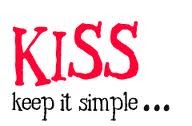- 1e & 2e are no longer in print
- HM 4e is not longer in print
- OSRIC, ADD & other 2e clones are in print but are different from the originals
- C&C & HM 5e are in print, but with issues
- You can play out of print games without commercial support
- You can play out of print games and adapt open source support
- You can play clones (OSRIC, ADD et al) and use oop material as support only
- You can make your own new game blending the elements you like
- You can adapt to the new games and deal with issues
- Playing oop print games without commercial support doesn't capture the whole experience for me. As much as I might rail against it at times, community is very important to me. I like an avid central core organizing the direction of play. Even though our game runs the gamut of imaginative possibilities there still needs to be for me, a central organizing core and authority that unites us all. In this way the collective power of imagination can work in ways it otherwise can't. You can have other guys playing separate game sessions, but what they imagine is a part of the whole tapestry of the game united by the central core and mechanic. With everyone doing their own thing this collective contribution isn't possible.
- But isn't that what the OGL solved for us? People who wanted to keep playing oop games could produce their own support material and unite on a grass roots level. Well, yeah, but it doesn't work in the same way. A grass roots movement has no central authority, no organizing capacity because noone speaks for the whole. Their is no court of common consent. And due to this anything can go within a particular game and noone can say anything but state their own opinions about it. Instead of appealing to an adjudicating party to determine what is and what isn't a part of the collective whole. So just playing oop games and using the open source gaming community to feed this need is not the same thing.
- Neither is playing clones. The same argument stands here as it does for sticking with oop games and using open source content. So this doesn't solve my dilemma either.
- And making your own game does give you some more control. But the danger is that a new game in the current environment competes with all the other offerings out there and either ends up trying to make an island in the open source ocean. Or you try and make it distinct and commercial and garner your own community around your version of the game. Which is trying to recreate what was lost so long ago. The only reason to do this is if your game truly doesn't exist in any form possible. And in order to play it you need to write your version down so others can play it with you. And even then you don't avoid the problems mentioned above.
- Which leaves trying to find a game that suits you currently in print and supported with like minded individuals. The building of community has already started so that works in your favor though it will never reach the status of TSR back in the day. I find the best example of this in the Troll Lords and KenzerCo. But both games have issues that keep me hesitating on committing. I recently tried to commit to C&C, but at the last minute held back. I think it was the fact that C&C did not include elements I really like from games like 1e/2e and HM. There wasn't quite enough depth or crunch. Though I could add it if I liked. HM causes me to hesitate some, because I'm basically unfamiliar with the structure and it sort of gets in the way of my gaming verisimilitude. I've been reading over the HM4e PHB and GMG though and much of the elements seem variations or expansions on mechanics already embedded in the original games. So I'm turning this over in my mind.
I've even allowed myself to speak out against Gary Gygax because of the supposed decisions that brought about AD&D. I want to publicly apologize for that. I always played Gary's game. For whatever reason he didn't see 0e as "his" game, and it appears rightfully so. There were lots of input and hands in that pot. It was a wide open and free wheeling creative process that brought 0e together. Gary took a deliberately different direction with Advanced Dungeons & Dragons, and he talks about this very fact in his introductions to the PHB. So whatever the background and reasons and causes AD&D is the direction Gary went. that is the game and the spirit I was familiar with and knew and loved. But wasn't just AD&D and the books under it's heading. It was a spirit. And that spirit Gary speaks to at length in the DMG and in his later work Role-Playing Mastery. I'm sorry I ever doubted you Gary.
So where does that leave me? I'm not sure, but I'm still thinking and for the first time in quite awhile it feels like I'm headed in the right direction. I can see the castle again through the mists ahead.



